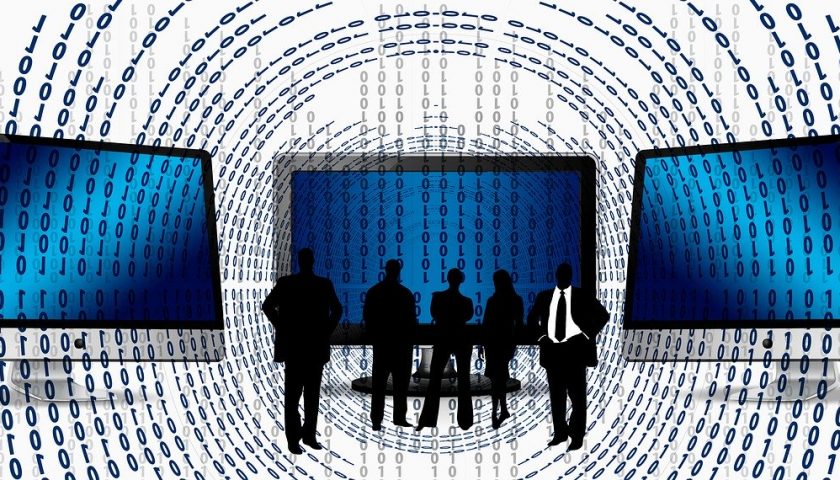
Korean Government reveals master plan to lead digital transition post COVID-19
The South Korean Government’s plans for post COVID-19 recovery includes two pillars – the Green New Deal and the Digital New Deal.
The Government aims to lead digital transition with the Digital New Deal by investing 23.4 trillion KRW (government spending: 18.6 trillion KRW) from the second half of 2020 to 2022; and 58.2 trillion KRW (government spending: 44.8 trillion KRW) by 2025 to create 903,000 new jobs by 2025.
During the virtual Extraordinary G20 Digital Economy Ministerial Meeting held in April this year, Minister Choi Kiyoung told the delegates the Digital New Deal program is aimed at creating jobs by fostering new industries such as in the field of digital infrastructure and big data.
The Digital New Deal is composed of 12 goals in four sectors.
1) Improve the Ecosystem of Data, Network and AI (D.N.A)
- Promote the collection, sharing and use of data in sectors close to peoples’ everyday lives
- Strengthen the entire data life cycle, from the collection, sharing and use of data to the distribution of data to the application of AI, by making government data open and encouraging the collection and use of sector-specific data, in addition to establishing a public-private data control centre, to accelerate the transition into a data economy.
2) Apply 5G mobile and AI to all sectors of industry from primary, secondary to tertiary
- Carry out a project aimed at applying 5G mobile and AI to all sectors of industry to promote the digital transition and create a new market.
3) 5G mobile and AI based government
- Use AI to make public services fast and customised to each individual and foster a 5G mobile and cloud based public smart work environment.
4) Establish K-cybersecurity system
- Establish a strong cybersecurity system to effectively respond to the increasing cyber threats induced by the acceleration of digital transition.
- Digitalise the Education Infrastructure
5) Establish digital education infrastructure for elementary, middle and high schools
- Promote digitalisation of the education infrastructure to create a smooth online/offline integrated learning environment at primary, secondary and post-secondary educational institutions, as well as job centres across the
6) Improve online education at universities and job training centres across the country
- Expand the infrastructure and content materials for online courses and improve online learning platforms to provide quality online courses at universities, lifelong learning centres or job training centres.
- Nurture Untact Industries
7) Establish smart healthcare and care-giving infrastructure
- Establish digital smart healthcare infrastructure to protect health workers and patients from the risks of infectious diseases and make health services more accessible for patients.
8) Promote remote working at SMEs
- Provide remote working infrastructure and consulting services to small- and medium-sized enterprises (SMEs) having difficulties from cost-bearing or inexperience and build shared video conference facilities at key areas where SMEs are concentrated.
9) Support micro enterprise’s online business
- Help micro enterprises raise their competitiveness by supporting them with access to e-commerce channels and providing smart business spacesand manufacturing facilities in response to the increase of untact services and digitisation.
- Digitalse Social Overhead Capital (SOC)
10) Establish a digital management system for critical infrastructure in four sectors
- Digitalise critical infrastructure, such as roads, railways, and ports, and establish an efficient disaster prevention and response system to make people’s lives safer and more convenient.
11) Digital transformation of urban areas and industrial complexes
- Expand smart cities and smart industrial complexes by digitalising living area and work spaces to make people’s lives safer and more convenient and raise business competitiveness.
12) Establish a smart logistics system
- Expand smart logistics infrastructure using the technologies of the Fourth Industrial Revolution to improve customer experience (e.g. optimised delivery) and raise logistics-industry competitiveness.
According to the Ministry of Science and ICT (MSIT) the world coming into the Fourth Industrial Revolution era.
The MSIT wants to establish a framework for smart healthcare and smart farms to support systematic development and utilization of ICT convergence services such as AI and blockchain.
ICT convergence standard framework is a map which develops and utilises ICT convergence services by comprehensively providing:
- Convergence service model analysis
- How to use existing standards
- Standards which need to be newly developed, which are required in deploying promising convergence industries and services including smart healthcare and smart farms.
To enhance interoperability of various services coming from the accelerated convergence between ICT and industries and support the standard development in promising services from a comprehensive perspective, the ICT convergence standard framework has begun to be developed since 2019.
MSIT said in a statement, the Electronics and Telecommunications Research Institute and Telecommunications Technology Association have finished the development of convergence standard framework in the areas of smart healthcare and smart farms through holding a total of 30 advisory committees and public hearings from May last year, with the participation from businesses, universities and experts of relevant institutions.
The smart healthcare and smart farm standard framework developed this time analyses and proposes the scenario for using promising services and the required standard.
As a result, the framework will contribute to expediting the launch of innovative convergence services such as general practitioner service using AI, big data and IoT, remote patient monitoring and algorithm-based smart farm control system.
To be specific, the standard framework of AI general practitioner service leads to the scenario to enable the service between:
- Patients and doctors
- AI general practitioner system
- Medical big data, and comprehensively provides the necessary standards for them.
Therefore, the South Korean government and experts in the field of standard development would be able to use them to take the lead in international standards and biohealth companies would be more likely to create innovative services by reducing trial and error.
In addition, the smart farm standard framework analyses and provides the scenario and the required standard for using data-based smart farm production and automatic control services, where ICT convergence has been emphasised.
This will greatly contribute to the government and businesses to deploy advanced farming production and management service such as automatic control on smart farms and production automation service and to take the lead in international standardization.
Furthermore, farmers would be able to manage agricultural products systematically ranging from automated crop cultivation by using data on growth environment and greenhouses to agricultural machinery maintenance and pest control services, said Director General Oh Sangjin at the ICT Industry Policy Bureau.
“In the Fourth Industrial Revolution era where a paradigm shift has taken place from its original focus on single products and services to the intelligence information-based ICT convergence industry, it is critical to lay out an extensive roadmap for standards by taking into account of convergence environment,” he said.
The ministry will work together with relevant departments and institutions for developing a standard framework about various ICT convergence services, so that relevant industries and services can be promoted, said Director General Oh.
Tags: Cybersecuritydigital transformationeconomic recoverySouth Korea




